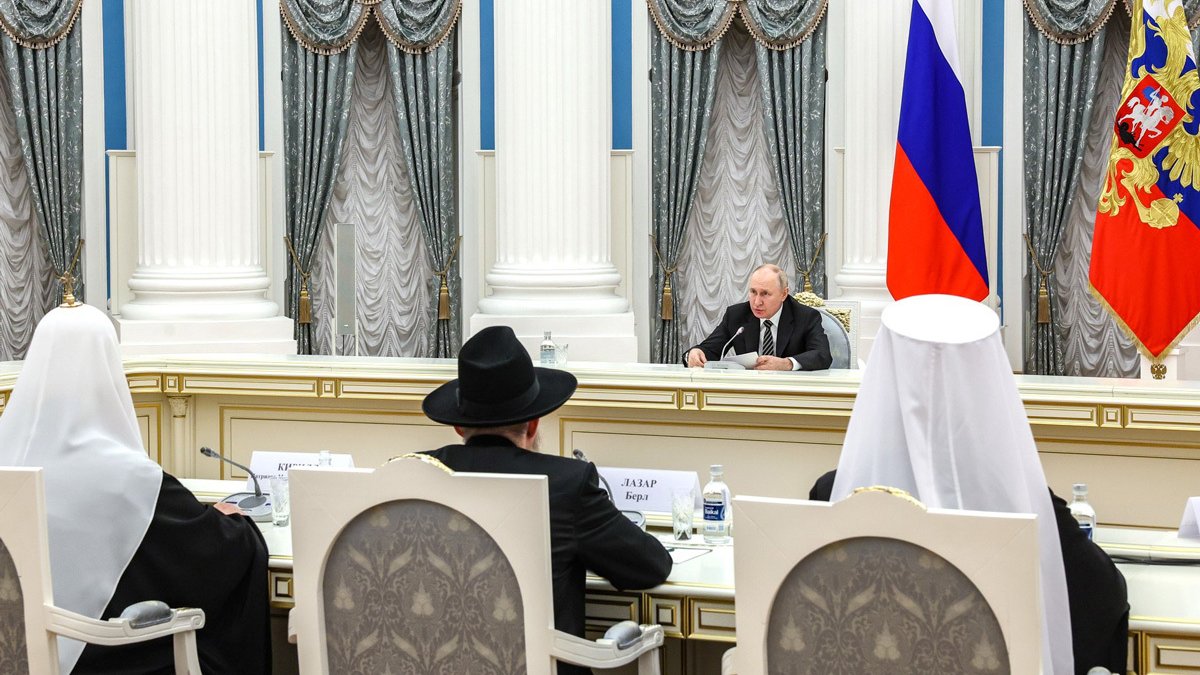Having assured Russian President Vladimir Putin last week that Russia was immune to religious conflict, the country’s Kremlin-appointed religious leaders have been left flailing and uncertain how to respond to the anti-Semitic riots that broke out in the Russian North Caucasus on Sunday.
Last Wednesday, Putin hosted a meeting with the leaders of Russia’s so-called “traditional” religions — including Orthodoxy, Judaism, and Islam — who all assured him that anti-Semitism and Islamophobia weren’t significant issues in contemporary Russia and that escalation in the Israel-Gaza war posed no threat to Russia’s stability.
But just four days later an angry mob overran the airport in Makhachkala, the capital of the Muslim-majority republic of Dagestan in southern Russia, looking for Jews and “refugees from Israel”.
Anti-Semitic hate crimes were reported elsewhere in the Russian Caucasus last week as well. A construction site for a Jewish Cultural Centre was set on fire in the capital of Kabardino-Balkaria, while in the Dagestani city of Khasavyurt, people attempted to set a hotel on fire due to unconfirmed reports that Jews were staying there.
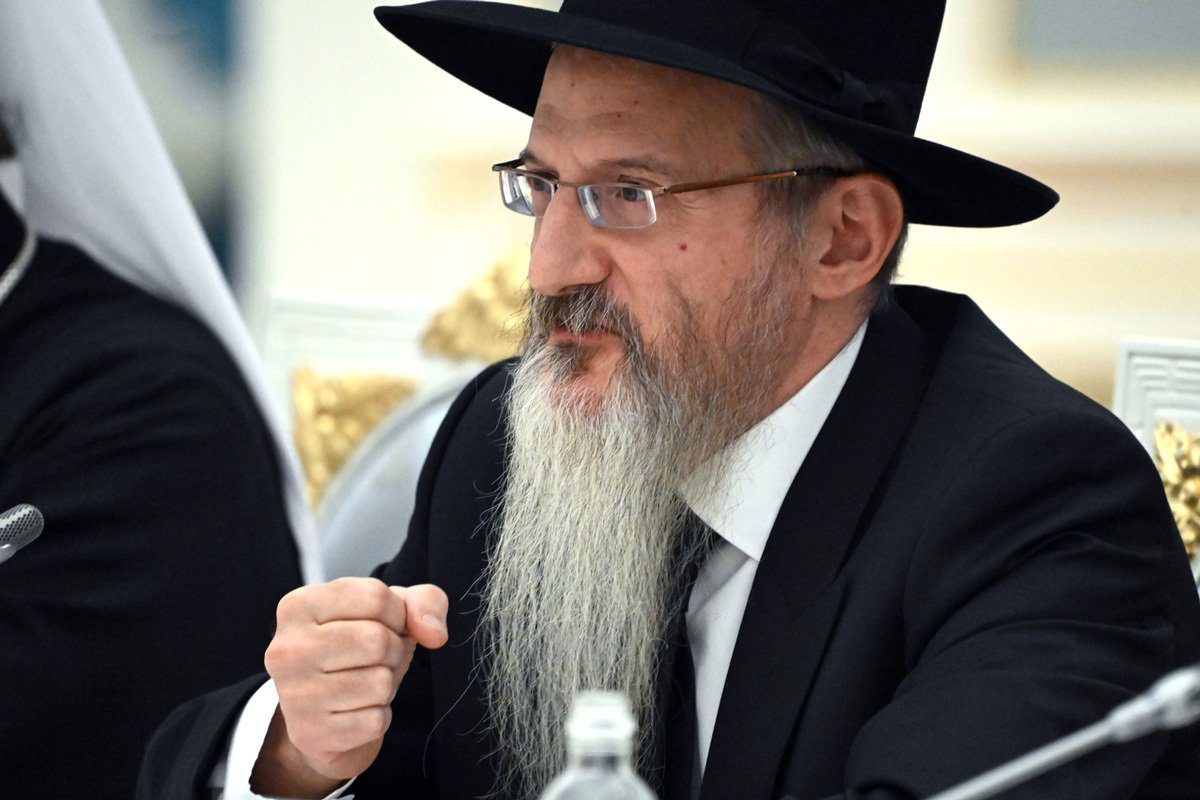
Chief Rabbi of Russia Berel Lazar at a meeting in the Kremlin. Photo: Sergey Guneev / RIA Novosti / the Kremlin
Patriarch Kirill responded to the Makhachkala Airport pogrom on Monday by acknowledging an “attempt to sow division between Russia’s Muslims and Jews” and claiming the source of the problem must have been external.
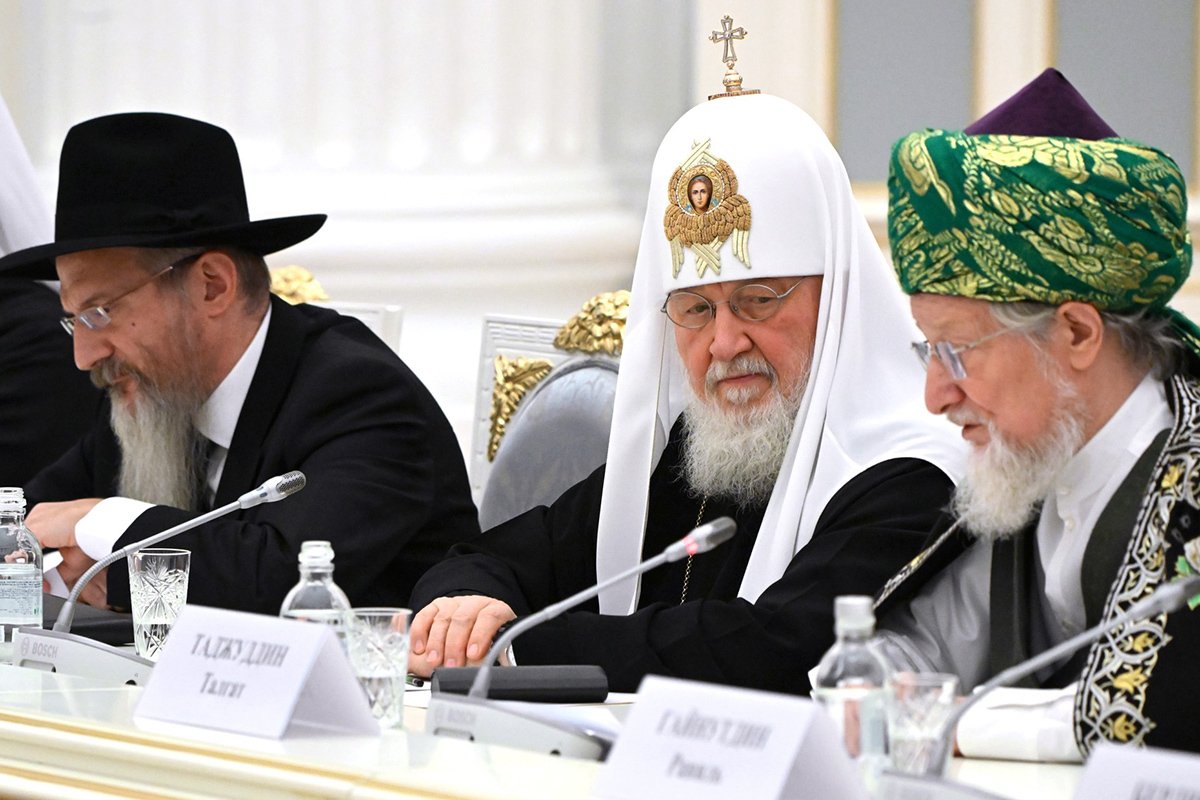
From left to right: Russia’s Chief Rabbi Berel Lazar, Patriarch Kirill of Moscow and All Russia, and Russia’s Grand Mufti Talgat Tadzhuddin Photo: Sergey Guneev / RIA Novosti / the Kremlin
Russia’s Grand Mufti, Talgat Tadzhuddin, has kept quiet about the Makhachkala pogrom, issuing a vague statement on the situation in the Middle East and expressing his “outrage over the cruelty unleashed during this conflict” following a meeting with Vladimir Putin and other religious leaders on 25 October. His younger rival, Moscow-based Mufti Rawil Gaynetdin, signed a long statement by the Spiritual Directorate of Russian Muslims, admitting that the conflict in the Middle East had spread to Russia too.
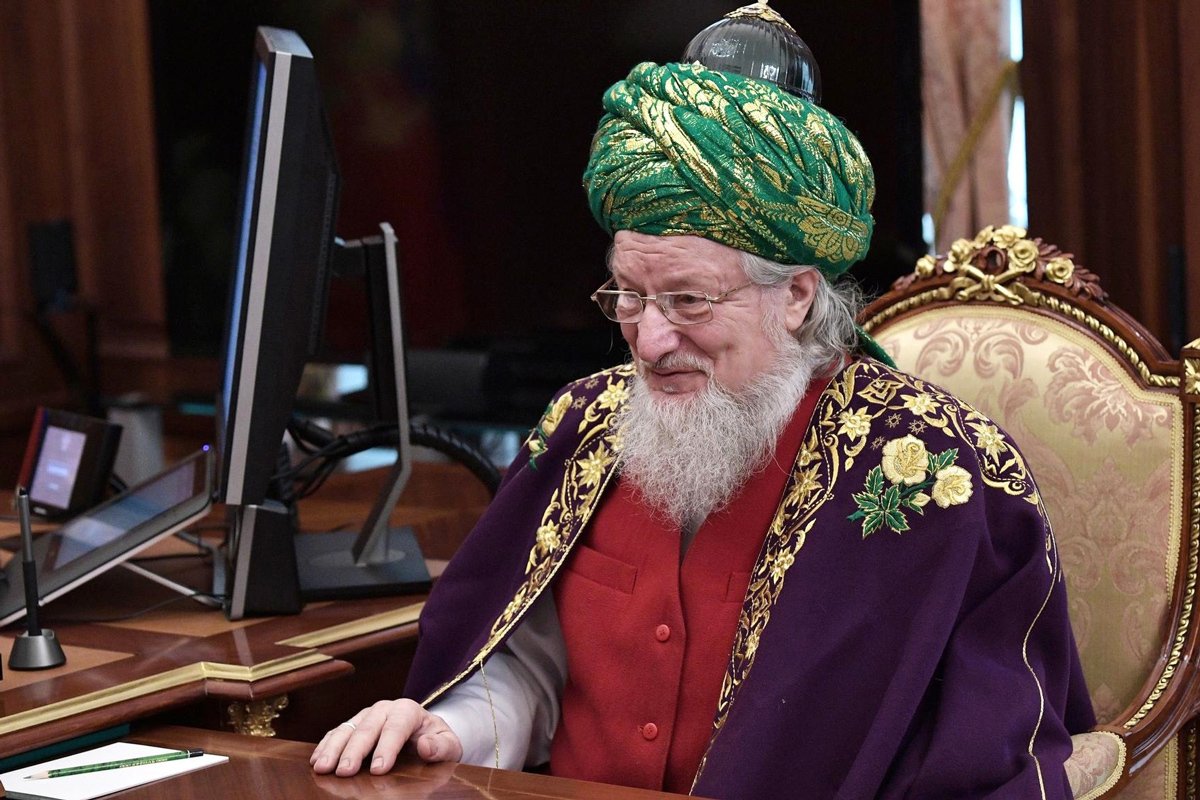
Talgat Tadzhuddin, Grand Mufti of Russia and Chairman of the Central Spiritual Directorate of Muslims of Russia . Photo: the Kremlin
During Sunday’s storming of Makhachkala Airport, Dagestan’s Mufti Akhmad Abdulayev called on the rioters to end the violence and leave the airport. He even pandered to the crowd’s anti-Semitism by promising to negotiate with local authorities to prevent a flight from Israel landing in Dagestan — the ostensible cause of riot.
However, nobody heeded Abdulayev’s words, and the mob was eventually dispersed a few hours later, in traditional Russian fashion, by special forces and the National Guard.
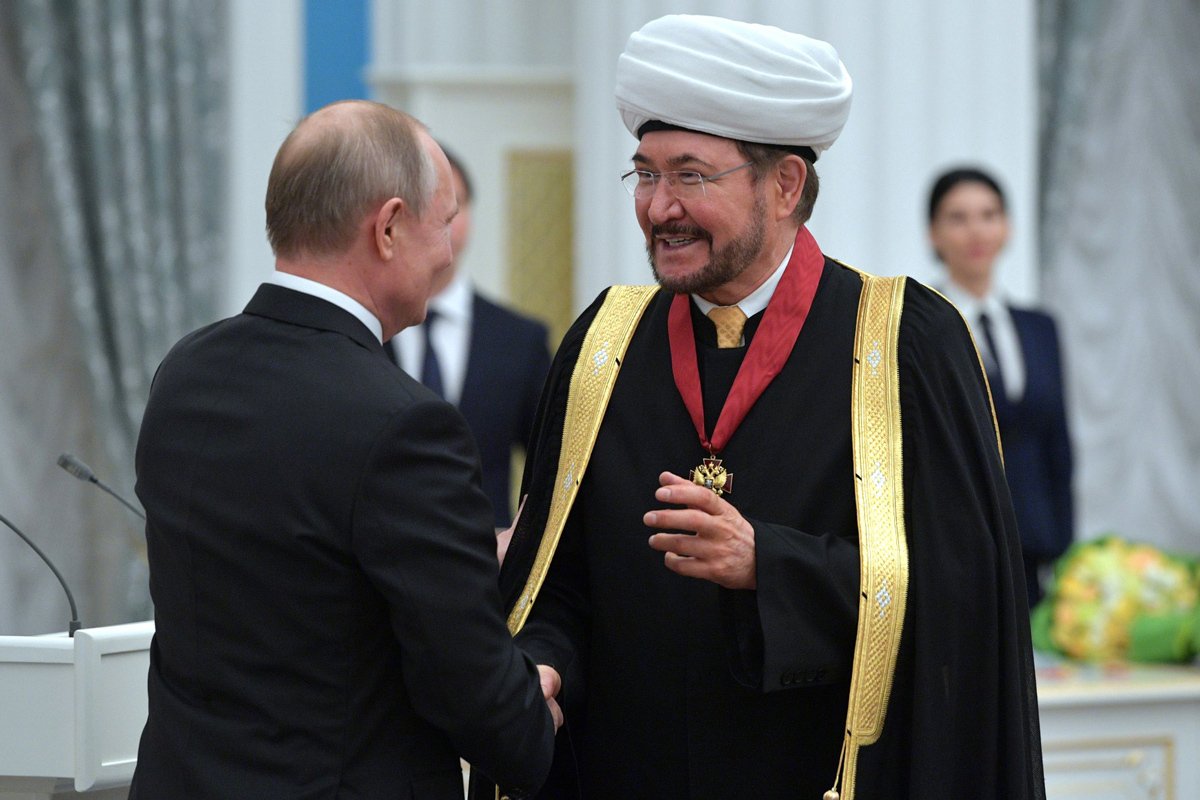
Chairman of the Russian Mufti Council Rawil Gaynetdin during a state award ceremony in the Kremlin in 2019. Photo: the Kremlin
According to the 2021 census, just over 80,000 Jews live in Russia, while just 700 Jewish families live in Dagestan, the Federation of Jewish Communities of Russia (FJCR) says.
“People in the community are scared”, says Ovadia Sakovart, who represents Russia’s Chief Rabbinate in Dagestan. “They call me [for advice], but I don’t know what to say to them … It’s unclear where we can escape to.”
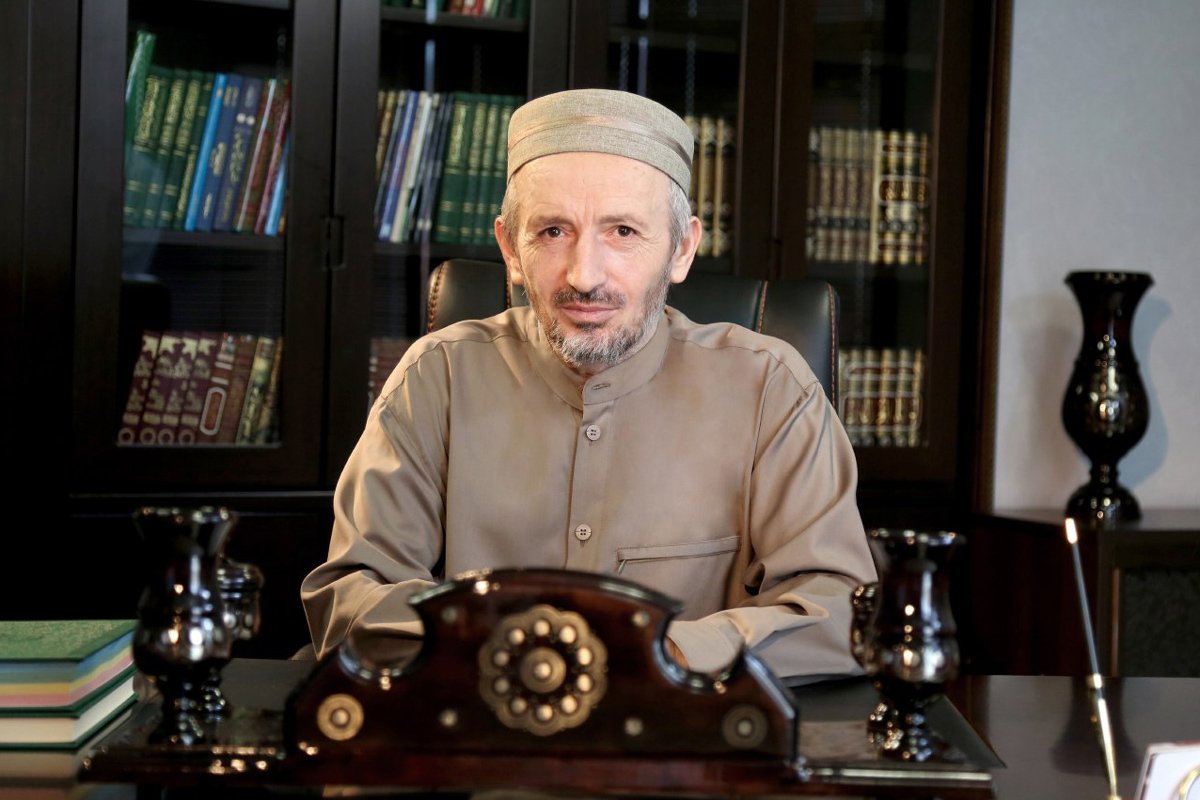
Dagestan’s Mufti Akhmad Abdulayev. Photo: Dagestan’s Muftiate
FJCR President Alexander Boroda released a statement on Monday in which he described incidents of open aggression towards Russian Jews and accused the authorities in Dagestan of being woefully unprepared to handle the unrest. He also called upon the federal government to punish those who instigated and took part in the riot “to the fullest extent of the law”.
But Boroda also censured the Russian government for stoking the flames of anti-Semitism with what he said was a pro-Palestinian bias in state media reporting that led the audience towards “radical viewpoints”.
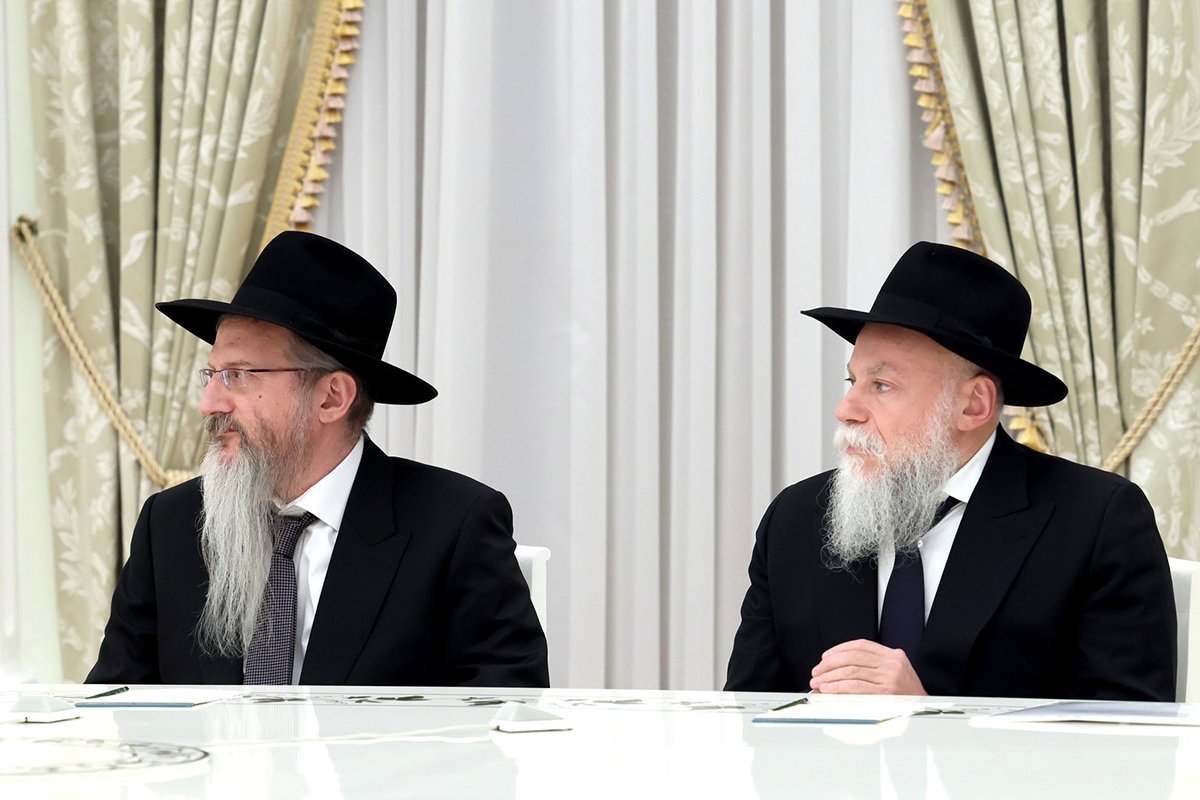
Chief Rabbi of Russia Berel Lazar (left) and FJCR President Alexander Boroda at a meeting in the Kremlin. Photo: Kremlin
The Kremlin’s indiscriminate use of terms such as “fascism”, “Ukrainian Nazism”, “Zionism”, and “International Jewry” in its barrage of propaganda aimed at justifying its ongoing war in Ukraine has only served to confuse the population, and it appears to have to way of reining in the anti-Semitisim it has itself been stoking for so long.
The distinctions between Putin’s regime and German National Socialism of the 1930s are becoming more and more difficult to see, with the result that there may be no easy way to prevent the rise of anti-Semitism in Russia today. There may be many more pogroms to come.
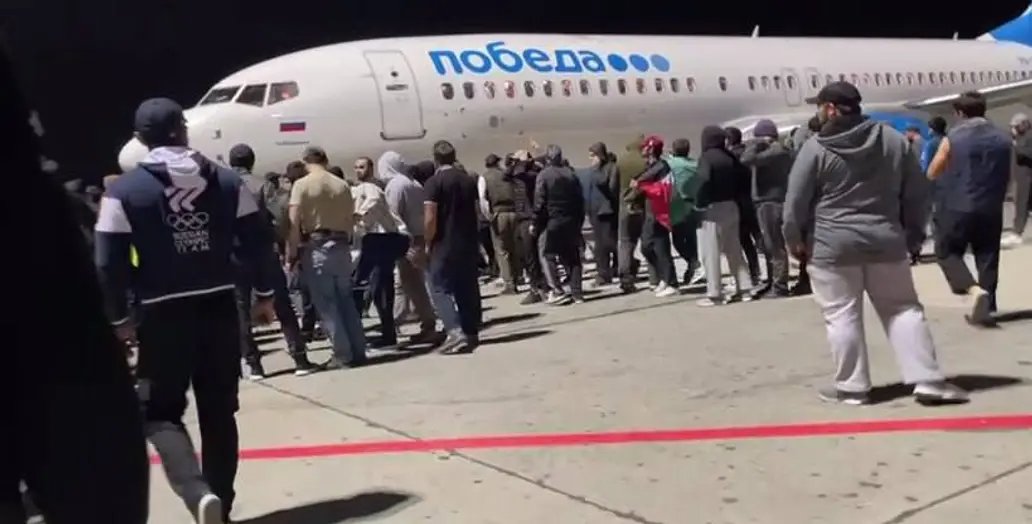
The plane from Israel attacked by a mob in the Makhachkala Airport on Sunday. Photo: social media
Join us in rebuilding Novaya Gazeta Europe
The Russian government has banned independent media. We were forced to leave our country in order to keep doing our job, telling our readers about what is going on Russia, Ukraine and Europe.
We will continue fighting against warfare and dictatorship. We believe that freedom of speech is the most efficient antidote against tyranny. Support us financially to help us fight for peace and freedom.
By clicking the Support button, you agree to the processing of your personal data.
To cancel a regular donation, please write to [email protected]
